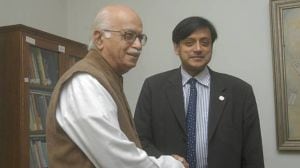Snapshots of a nation
The new double-disc edition of Once Upon a Time In America has a super documentary in it too,which lets you in on a host of admiring voices.
There are some films I can see over and over and over again. Sergio Leones magnificent Once Upon A Time in America (1984) is right there on the top of that list,an unalloyed pleasure every time I sit down to it. The new double-disc edition of the film has a super documentary in it too,which lets you in on a host of admiring voices. Major Leone fan Quentin Tarantino shakes his head in disbelief: you would have thought he (Leone) couldnt better it after the Dollars trilogy (A Fistful of Dollars,1964; For a Few Dollars More,1965; and The Good,The Bad and the Ugly,1966) but here he is,and you wonder how far he can take it.
Well,beyond anything hed done before,for sure. For all its scope and sheer expanse,the film is,at its heart,a story of friendship and love and betrayal,themes that never go out of fashion. Four friends growing up poor in the 1920s in New Yorks lower east side do what they can to escape. So what if they have to steal and kill? Being good at what they do is their passport to profiteering and politicking and the good life,and it is something that Max (James Woods) and Noodles (Robert De Niro) learn well.
Like all great gangster films,Once Upon A Time in America gives us characters who do much more than point and shoot. Noodles,in particular,is complex and layered,and De Niro comes up with a bravura performance: yes,hes not a good guy,and yes,hes killed people,but hes also a guy who yearns and loves. Watching Noodles and his friends,as they grow from good-looking pre-teens to young on-the-make hoods in post-prohibition America to made men with stooping shoulders and greying hair in the late 60s,you know you are looking at a country and its movies come of age.
Very often,we see child characters in movies grow up into their adult selves and wonder why there is such a disconnect between the two. Leones casting was so perfect that you know exactly who came from whom: the younger Noodles could never have been the older Max,and the younger Deborah (Jennifer Connelly),the love of Noodles life,could only have grown into the older one (Elizabeth McGovern): both are achingly beautiful and out of his reach. The detailing of the characters and the settings is perfect too,and you know why the director and his screenplay writers took more than 10 years to plan this film: everything is just as it should be. And oh,the music: the legendary Ennio Morricones score is,quite simply,divine.
Time magazine critic Richard Schickels feature-length audio commentary is a good tool for film students and buffs. He takes you along scene-by-scene and shows you things you may have missed,and things that hes seen and enjoyed which have deep significance in the film: theres a stop-watch that shows up right in the beginning,and that same watch is present at the end,a lovely leitmotif about time and its passing in a movie which is timeless.



- 01
- 02
- 03
- 04
- 05




























